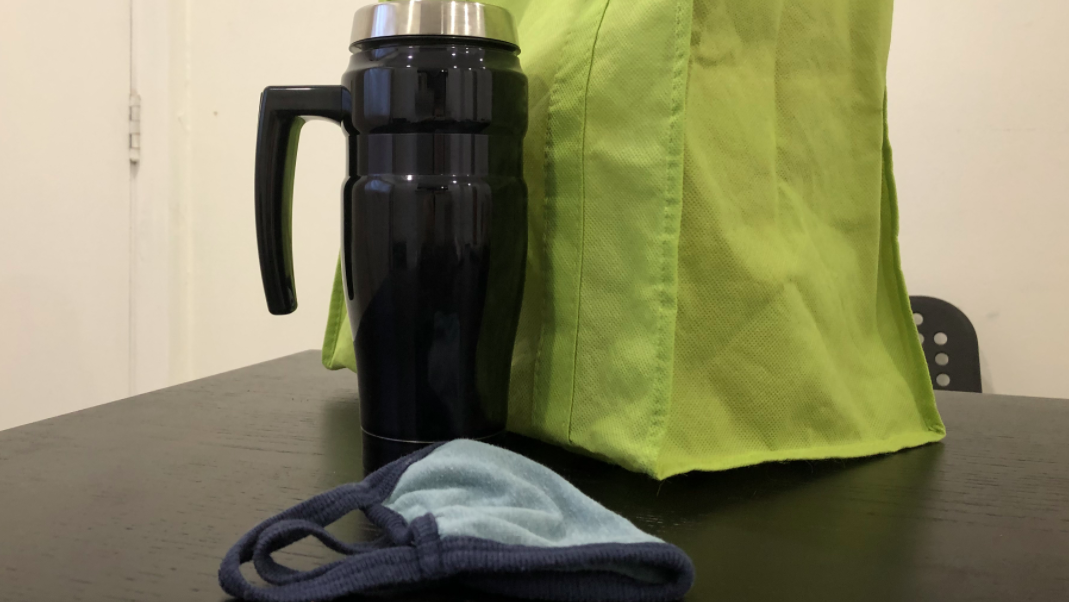Before the pandemic, I was making as many small lifestyle changes as possible to reduce my ecological footprint: using reusable containers and bringing them around with me, avoiding excessive plastic waste, buying locally and trying not to use harsh cleaning products.
However, once the first lockdown hit in March, I was generating a lot of waste that simply could not be avoided. I still cared deeply about sustainability, but I started using latex gloves when shopping, wearing disposable face masks and using Lysol 30 times a day.
Coronavirus precautions are now the new normal and we are past the total-panic mode of March and April. Still, in this time of COVID, it has become harder to make sustainable choices — especially with regards to plastic waste — when disposability rather than reusability is sometimes the safer choice for public health.
Yet there are still many ways that to make sustainable choices, while still staying safe and recognizing the financial limitations many are facing as a result of the pandemic.
Cloth masks
Reusable cloth masks are an everyday staple for most Canadians. Unless you are in a situation where it is necessary to use the highest-grade, disposable PPE (for example, if you work in health care or are around high-risk individuals) wearing reusable masks is a sustainable way to keep others safe and reduce waste. Cloth masks are easy to use and for most situations — such as going to a store — they provide adequate protection. You can read more detailed information about why masks are important here.
Reusables
While many grocery stores and cafés went through a period of not accepting customers’ reusable shopping bags, cups or containers because of the contamination risk, most places are accepting reusables again. Just take precautions, such as making sure to fully clean travel mugs and containers after each use. At the grocery store, pack purchased items in your reusable bags and wash the bags regularly.
Try zero-waste shopping
Ottawa’s NU Grocery stores, which operate on a zero-waste basis, offer in-store shopping with new COVID protocols as well as a full, waste-free delivery service on Mondays. In the store, surfaces are sanitized and customers can safely fill containers brought from home using clean funnels.
Buy locally
Shopping local can be expensive; especially given the financial troubles so many face, so it isn’t always an option. But if you are able, try to replace some of your usual purchases with locally produced products. For example, buy produce from local farmers year-round directly or through outdoor markets. This more environmentally friendly — reducing or eliminating the carbon emissions from long-haul transportation of products — and it helps local businesses likely hit hard by the pandemic.
‘Buy Nothing’ groups
Most neighbourhoods in Ottawa have Buy Nothing Facebook groups through which neighbours exchange or pass along they are not using anymore. This is a way to reduce waste and help the community — and it’s free.
Try plant-based recipes
Still looking to master cooking in quarantine? Try more plant-based recipes. Reducing meat and dairy consumption can cut your carbon footprint, but you don’t have to go fully vegan or vegetarian to incorporate more plant-based food into your diet. The folks at PlantEd Project, based in Ottawa, offer virtual cooking workshops in which they share and demonstrate easy vegan recipes.
These are only a few ways we can incorporate (or re-incorporate) sustainability into our daily lives while still protecting ourselves and others from COVID-19.
It’s not always easy to make the most sustainable choice, especially when COVID precautions have to take priority or when finances are tight. However, every little bit helps. You don’t have to live a perfectly zero-waste life to make an impact.




